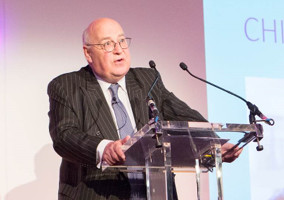As the general election causes the Lobbying Act to again be at the forefront of the sector's mind, CAF's Steve Clapperton takes a look at whether charities should feel stifled by the Act.
The 2017 general election, for charities, takes place under rules set out in the Lobbying Act. This Act, introduced by the coalition government, was widely criticised by charities at the time, with many organisations – including CAF – warning that it would restrict the ability of charities to speak up for their beneficiaries.
Concerns were twofold. Firstly, it was argued that the actual legislation itself was restrictive, by forcing charities to register – with an implied sense of wrongdoing – if they engaged in advocacy and campaigning over an election period. Secondly, and perhaps more worrying, there was a sense that the Lobbying Act helped to create a climate in which charities became unsure about the legitimacy of their advocacy, so refrained from speaking up for their beneficiaries even where they were legally and morally correct to do so.
It isn’t just charities that have pointed out the adverse affect the Lobbying Act is having; Lord Hodgson’s review of how the Act operated in the 2015 general election proposed a number of steps that the government could take to try to mitigate the impact that it is having on charities, and many organisations working in the sector have called for their introduction.
However, this election has really brought home the impact that the Lobbying Act is having. Part of this is down to the ‘snap’ nature of the election. Rather than working towards an expected election in 2020 (so much for the Fixed Terms Parliament Act…), charities found themselves unexpectedly faced with an election campaign, with the spending limits in the Lobbying Act now backdated by twelve months.
Adding to the uncertainty
This has left many charities scrambling around to try and work out whether they – completely inadvertently and unavoidably – managed to breach spending limits that they did not believe to be in operation at the time, because an election was not on the cards. That only adds to the uncertainly, although the Electoral Commission has helpfully made it clear that it will take a pragmatic and proportionate approach.
There is certainly a general sense that charities have been sitting this election out. That means that the many millions of people who rely on charities to speak up for them find themselves and their needs neglected. This is particularly true of those on the margins of society – without charities advocating on their behalf, they are rendered voiceless.
Indicative of this are stories about social care, with one charity leader explaining that they would be willing to speak out on Friday 9th June – the day after the election. Of course, by that point the election will be over, and that organisation’s views on social care policy – whether supportive or critical of the policies put forward by each party – will have been absent during the most important part of the democratic process.
Of course, the Lobbying Act never needed to apply to charities in the first place – their engagement in advocacy and at election times was already adequately covered by the Political Parties, Elections and Referendums Act, and the Charity Commission’s CC9 guidance on campaigning. CAF stood against the Act at the time it was introduced. We have consistently warned of the negative impact that it will have, and we take no pleasure in being proven right, with even some politicians who voted for it now accepting the damage that it has done.
Charities should get out there and campaign
The Lobbying Act appears to be having a chilling effect on charities who do not feel confident in campaigning under the now fairly complex regime. That is not something that we should accept. It is true that few charities have been prosecuted under the Act and that when charities stick to accepted norms (and Charity Commission guidance) on campaigning they should be compliant. As such, charities should get out there and campaign on behalf of their causes and beneficiaries as loudly and confidently as ever.
Charity advocacy has played an important role in much of the social progress that we now take for granted. After the election, politicians of all colours need to think long and hard about getting rid of this needlessly complex and counterproductive piece of legislation.
Steve Clapperton is campaigns manager at the Charities Aid Foundation
Related articles












